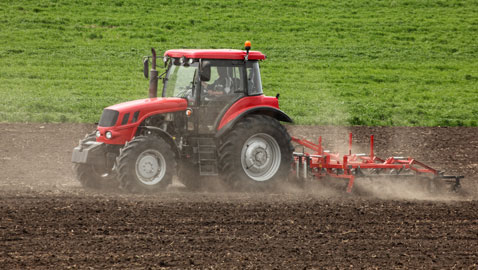
The second half of 2012 saw farmland prices reach record levels, according to chartered surveyors.
The latest RICS Rural Land Market Survey reported that demand for commercial farmland continued to grow over the final six months of last year.
The average price per acre for farmland in England and Wales increased to £6,783 during the period. Prices have now continually risen since the beginning of 2009. Surveyors attribute the strength of farmland prices to increased demand and lack of available land.
The majority of demand continues to be driven by commercial farmers, keen to expand production to capitalise on high agricultural commodity prices. However, surveyors note that farmers are discriminating in favour of large, top quality neighbouring plots with as small a residential component as possible. As a result, there is considerable price differentiation in farmland, even locally. Plots that are smaller, of lower soil quality or contain a higher residential component are attracting much less interest and achieving lower average per acre prices.
This continued demand was met with a downturn in land availability. A net balance of 20% of respondents reported a fall in supply of commercial farmland. In contrast, residential farmland saw a rise in available land, with 46% more surveyors reporting an increase rather than decrease.
Looking ahead, given the current strength of farmland prices and the lack of available land, a net balance of 54% of surveyors expect prices to continue to increase over the next 12 months.
Sue Steer, RICS spokesperson, said that With demand for commercial farmland continuing to grow and the continued lack of land to meet supply, prices look set to climb new highs.
She added: “That said, it appears farmers are still being a little selective, with only the very best quality land going for top prices.
“Meanwhile, demand for residential farmland may also begin to pick up, particularly given its relatively favourable tax treatment and it’s perceived ‘safe haven’ status in periods of economic uncertainty.”